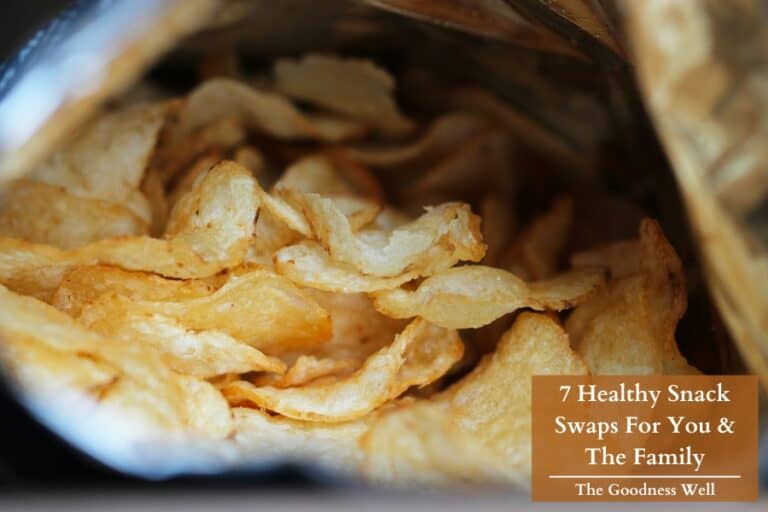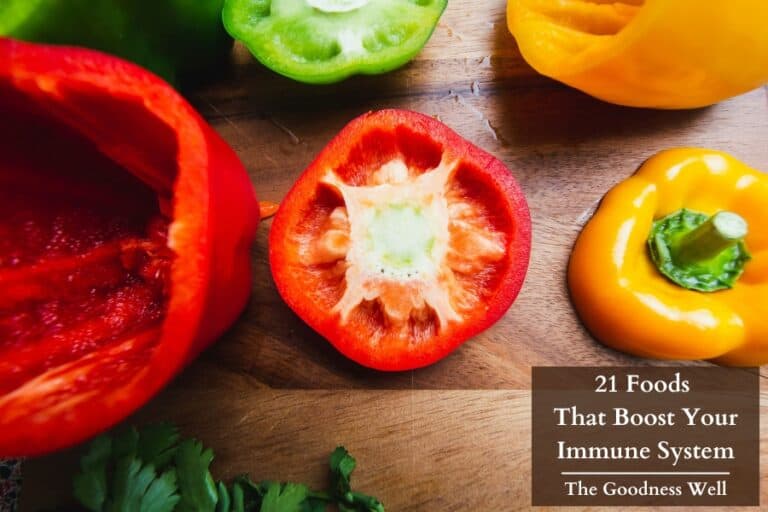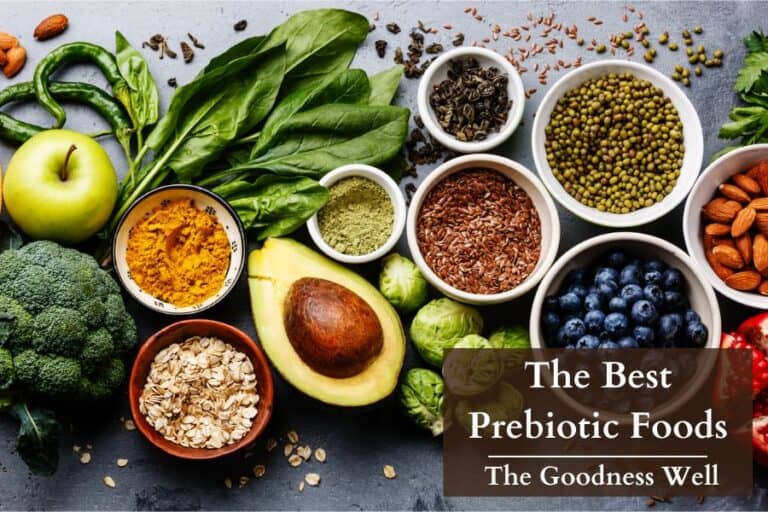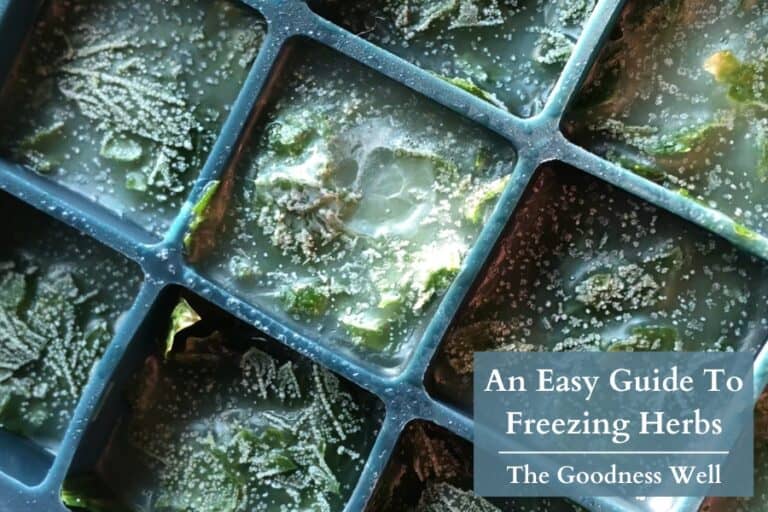The 7 Powerful Benefits Of Eating Organic Foods
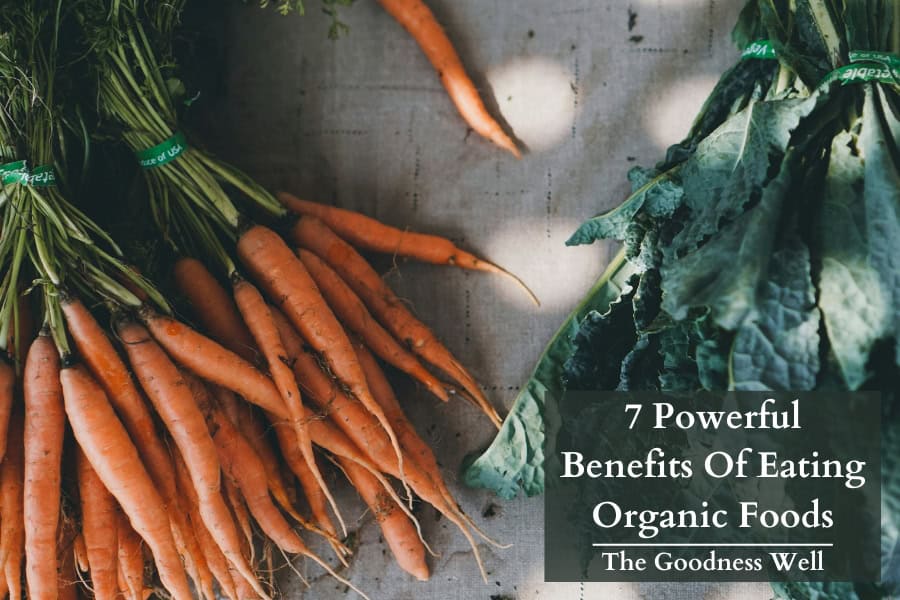
Organic food is becoming more popular as people seek out healthier options.
But let’s be real… Groceries are becoming more and more expensive, which can cause you to reconsider if buying organic, often at a higher price, is even really worth it.
As someone who’s asked the same question while juggling health priorities and a tight budget, I understand the struggle. This article focuses on answering that question and looking at the true benefits of eating organic and whether or not those benefits are worth it.
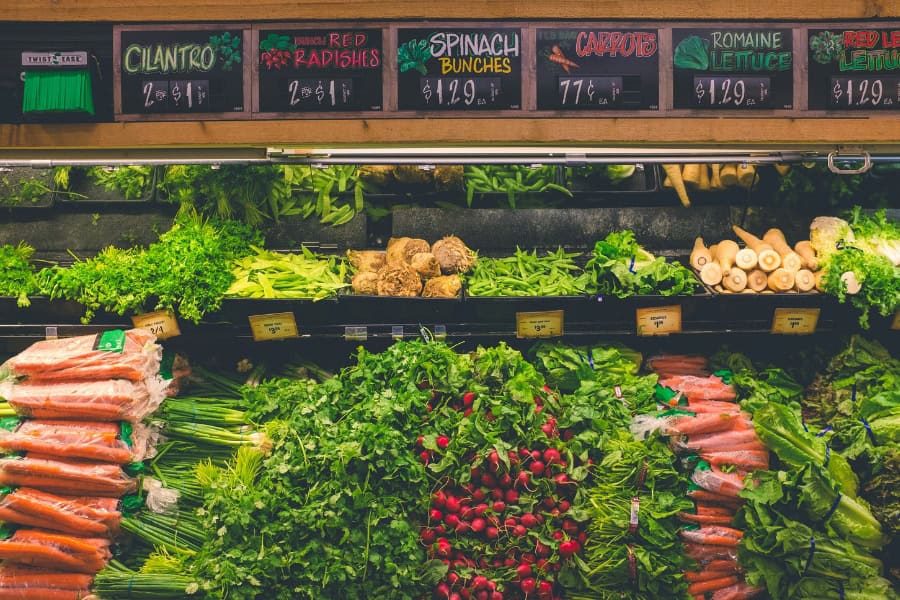
What is Organic Food?
Organic food refers to produce grown without synthetic pesticides, herbicides, fertilizers, or genetically modified organisms (GMOs).
Many people think organic food only pertains to fruits and vegetables but it actually includes food such as protein, and other animal products as well as foods made using organic produce and dairy.
For animal products, it means no antibiotics, hormones, or artificial feed, and the animals have to be allowed outside for significant amounts of time. This is where you get terms like “pasture-raised” from.
- Organic Foods include:
- Produce: Apples, spinach, strawberries.
- Dairy: Organic milk and yogurt.
- Meat: Organic, grass-fed beef or free-range chicken.
- Snacks: Organic granola bars or chips made without synthetic additives.
1. Reduces Exposure to Harmful Chemicals
Organic food is grown without synthetic pesticides and fertilizers.
Studies show organic food has lower pesticide and heavy metal residues, reducing potential risks for health issues. However, it is important to note that the long-term effects of eating conventional (non-organic) food are still being studied and there are no definitive long-term studies that link non-organic food to long-term negative health effects.
With that being said, at one time, there were no long-term studies on trans fats. They were widely considered safe. Later, research revealed they increased the risk of heart disease and were linked to potential carcinogenic effects.
In my opinion, it’s better to be on the safe side instead of waiting for the FDA to catch up.
While studies have linked organic diets to reduced risks of obesity, infertility, and certain birth defects, causation hasn’t been definitively proven.
However, these benefits are especially meaningful for vulnerable groups such as pregnant women, children, and individuals with weakened immune systems, who can be more sensitive to chemical residues.
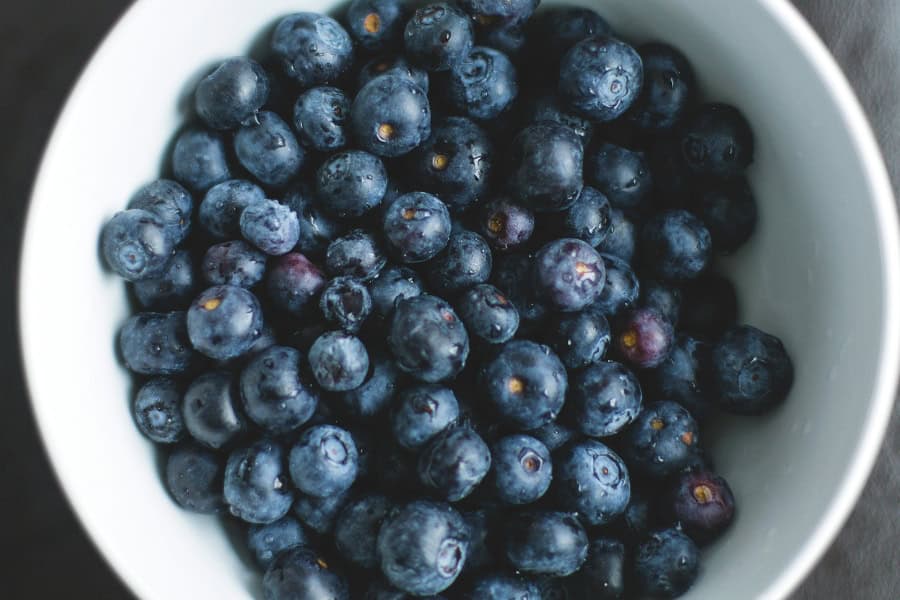
2. Higher Levels of Certain Nutrients
Some studies suggest organic produce may contain higher levels of vitamin C, magnesium, and antioxidants like polyphenols. Organic meat and dairy often have higher omega-3 fatty acid levels due to better animal feed.
However, it’s important to note that some studies show no major differences in key nutrients like antioxidants or carotenoids, meaning organic and conventional foods are nutritionally similar.
Organic and non-organic produce offer similar nutritional value, but organic animal products like meat, dairy, and eggs provide a clear advantage by avoiding added antibiotics and hormones.
3. Benefits for the Environment
Organic farming promotes soil health through crop rotation and composting, reduces pollution by avoiding synthetic fertilizers and pesticides, and supports biodiversity by protecting pollinators and wildlife.
While it typically produces lower yields than conventional farming, organic methods improve the land, prevent erosion, and enhance carbon sequestration.
Critics of organic farming focus on yield per acre, which can make conventional farming seem better. What they tend to miss is the land-based metrics that reveal organic farming’s broader environmental benefits, including 43% fewer greenhouse gas emissions per acre.
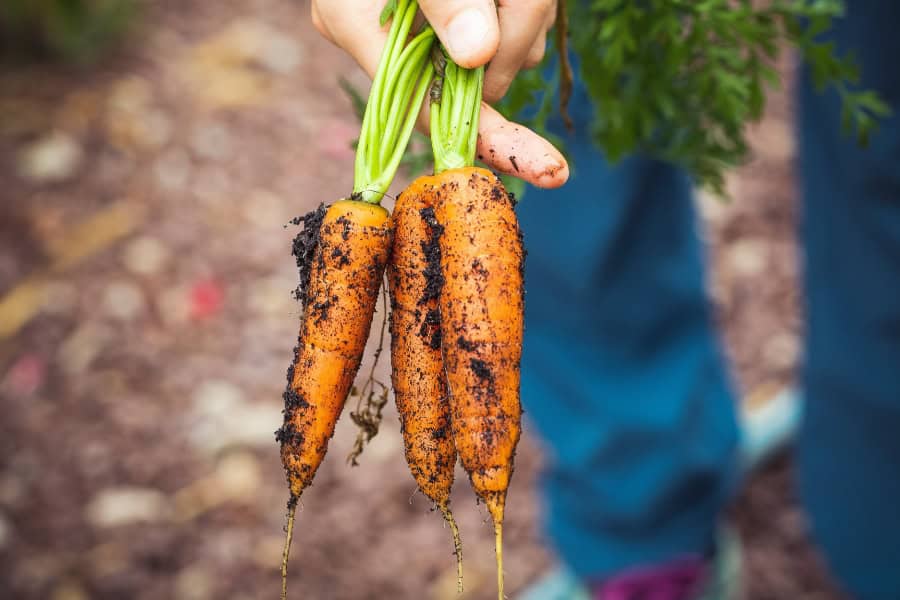
4. Promotes Ethical Farming Practices
Organic farming emphasizes the humane treatment of animals, fair labor practices, and sustainable land use.
Animals are raised in more natural environments, reducing stress and ensuring ethical standards.
Supporting organic farmers encourages a food system built on respect for workers, animals, and ecosystems.
5. Supports Biodiversity
Organic farming avoids harmful chemicals that can kill pollinators and other essential wildlife.
Crop diversity on organic farms reduces the risk of monoculture farming, promoting ecosystem balance.
You might hear people say that pesticides only affect the outer layer of fruits, but the truth is they go much deeper.
Certain pesticides and fertilizers can seep into the soil, entering crops through their water and roots. This can negatively impact soil quality, contaminate waterways, and harm animals and insects that interact with the crops.
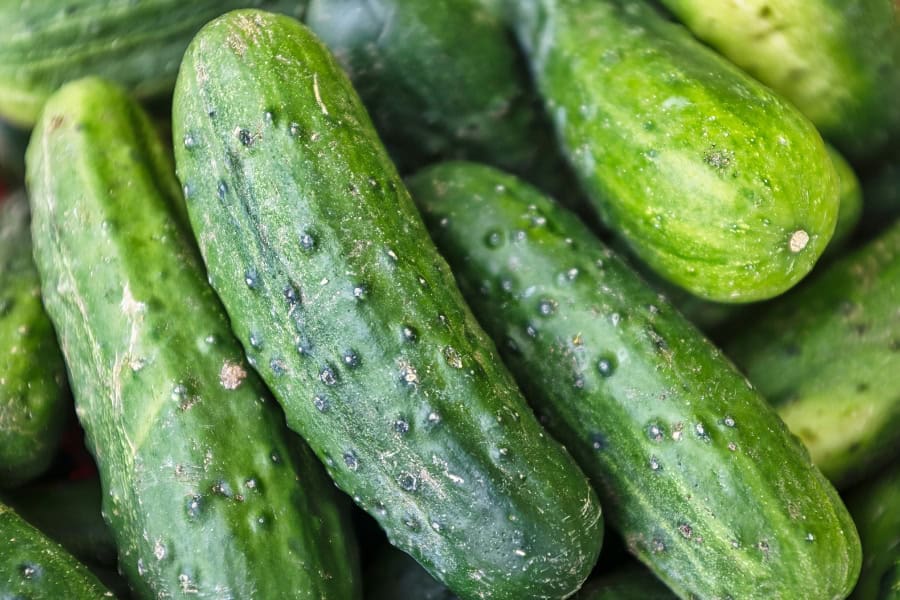
6. Better Taste for Some Foods
Organic produce and meats are often praised for their richer flavor, which many attribute to healthier soil and natural growth cycles.
I will say as someone who has grown their own produce. I have experienced firsthand the difference between cutting open a conventional cucumber or onion I used to buy at the grocery store vs an organic one I grew in my own backyard.
The first thing I notice other than the color is the smell!
7. Ethical Animal Treatment
Lastly, organic foods mean not just better farming practices but also ethical treatment of animals. Organic livestock must be raised with access to outdoor spaces and fed natural, organic feed, avoiding antibiotics and growth hormones.
These practices support more humane treatment by allowing animals to live in conditions closer to their natural environment. Healthier animals often produce higher-quality meat, dairy, and eggs, free from residues of antibiotics or hormones.
Plus, genuine ethical animal treatment is what animals deserve.

Swaps to Get Started
While we always say you should choose organic as much as possible, it’s better to eat nonorganic produce than to not eat any fruits and vegetables at all.
But we get it going organic can sometimes mean more thoughtfulness at the grocery store and sometimes more of an expense. That’s why we suggest taking steps and making simple swaps that help you develop the habit of shopping more organic.
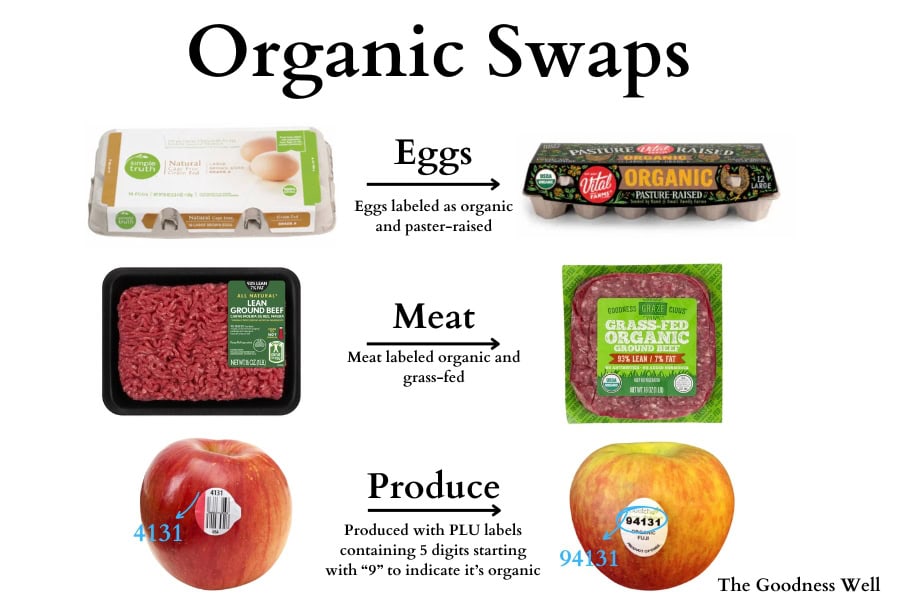
Shopping local and growing some of your own food are great ways that help you have more options for organic foods.
In the end, choosing organic helps you avoid unnecessary chemicals while supporting healthier, more sustainable practices for yourself, the environment, and future generations.


